Fritextsökning
Artiklar per år
Innehållstyper
-

Glad sommar! – och chefredaktörens lästips
Life Science Swedens chefredaktör sammanfattar året hittills och ger lästips inför sommaren.
-

Lucy Robertshaw: Artificial intelligence – is this really going to transform a patient’s life?
In a column Lucy Robertshaw reflects on how AI and new regulations will affect healthcare, innovation and the lives of future patients.
-

AstraZeneca moves to brewery quarters in central Copenhagen
AstraZeneca in Denmark is moving its business into central Copenhagen and the old brewery quarters in Carlsberg Byen.
-
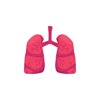
Nanoparticles to help detect pulmonary disease
Nanoparticles behave in a certain way in the air. Using this knowledge, researchers at Lund University have developed a new measurement method for lung examinations based on the phenomenon.
-

This is the future location of the new national innovation cluster
Mölndal and Goco Health Innovation City will be the site of a new national innovation cluster for advanced therapies. The business community and the Swedish government are splitting the costs of the project, which is expected to produce new treatments for common diseases such as cancer and diabetes.
-

Rapid developments in AI – “All stakeholders are struggling to understand it”
Artificial intelligence is being discussed more and more, and developments in the field are moving rapidly. As the Swedish Medical Products Agency testifies, keeping up with developments is not easy.
-

Samuel Lagercrantz: The government’s performance in healthcare and life sciences so far
Since the change of government in Sweden, developments in the healthcare sector have shown promising signs, but the outlook in life sciences is less promising, writes Samuel Lagercrantz in an editorial.
-

Uncertainty about the government’s life science work
The government’s national coordinator for life science, Jenni Nordborg, left her position almost four months ago. No one has yet succeeded her, and now questions are being raised both about the government’s plans for the office and the Swedish life science strategy.
-
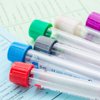
New diagnostic rules raise concerns
In a panel discussion, several voices from academia and the industry expressed concerns about the transition to the new regulatory framework for in-vitro diagnostics (IVDR). They argue that it may create significant differences between regions, and patients may be affected.
-

Oroliga röster om de nya diagnostikreglerna
Flera röster från akademin och branschen uttryckte oro över omställningen till det nya regelverket för in-vitrodiagnostik, IVDR, i ett panelsamtal. Skillnaderna mellan regionerna kan bli stora och patienter kan drabbas, menar de.
-

Elypta awarded one million USD from the Star Trek creator’s foundation
Swedish company Elypta, which develops methods for early cancer detection, has been awarded one million USD from an unexpected source: a foundation set up in memory of the creator of Star Trek.
-

”Det kommer vara en uppförsbacke”
Förra året infördes det nya regelverket för in vitro-diagnostik i EU, IVDR. Karin von Wachenfeldt vd på Truly Labs menar att omställningen till det nya regelverket kommer att vara tuff men att det förhoppningsvis kommer leda till en förbättring i längden.
-
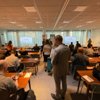
Flera välkända namn vid möte om diagnostik
Från det nya regelverket om in-vitrodiagnostik, IVDR, till nya sätt att utforska proteiner i blodet i samband med cancer. De är bara några av de ämnena som kommer att beröras på eventet Lab & Diagnostics of the Future som pågår idag, onsdag, i Solna.
-

Så påverkas vården av nya diagnostikreglerna
Högre kostnader, brist på vissa diagnostikprodukter och mer administrativt arbete med egentillverkning är några sannolika effekter för vården av de nya, skärpta EU-reglerna för in vitro-diagnostik, enligt en färsk konsekvensbeskrivning. ”Vi ligger efter, men vi har en plan för att komma ikapp“, säger Andreas Resar, uppdragsledare i regionernas IVDR-nätverk, som ligger bakom rapporten.
-
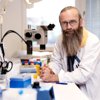
Conference on Alzheimer’s reveals several advances in the field
In Gothenburg, Sweden, researchers and pharmaceutical companies from all over the world gathered to discuss one specific issue – neurological diseases. Life Science Sweden has talked to some of those that attended the conference.
-

Life Science Swedens förlag lanserar branschkurser
Branschtidningsförlaget Nordiske Medier, där Life Science Sweden ingår, erbjuder nu utbildningar.
-
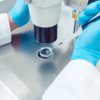
Stora framsteg i IVF-labb de senaste decennierna
Sedan introduktionen av provrörsbefruktning flera decennier sedan har flertalet tekniska framsteg gjorts inom området och den huvudsakliga utvecklingen har skett i labb.
-

Major advances in IVF labs in the last few decades
Since the introduction of in vitro fertilisation several decades ago, many developments have been made in the field, and the main part of that development has taken place in the lab.
-

Blixtsnabb utveckling inom blodanalys – "Det är Sverige som leder racet"
Tusentals analytiska tester – med hjälp av en enda droppe blod. Det som avslöjades som en bluff för bara några år sedan är nu verklighet, enligt KTH-professorn och serieentreprenören Mathias Uhlén. "Utvecklingen på området går svindlande fort nu, och det är Sverige som leder racet", säger han till Life Science Sweden.
-

Editorial: ”AI that both impresses and frightens”
”In the past, I've rarely been particularly impressed by something that was produced by AI. But this is something completely different”, Samuel Lagercrantz writes in an editorial.
-

A surprising discovery about the immune system in cases of cancer
Professor Göran Jönsson is trying to understand why some patients benefit from immunotherapies while others don’t. A couple of years ago, he made a surprising discovery about the function of the immune system.
-

Rapid development in blood analysis – “Sweden is leading the race”
Thousands of analytical tests using just one single drop of blood. What was revealed as a hoax just a few years ago is now a reality, according to KTH professor and serial entrepreneur Mathias Uhlén.
-

Individual DNA passport could result in fewer drug side effects
You may be required to show a DNA passport when you pick up medicines at the pharmacy in the future. According to a new study, patients might suffer 30% fewer side effects if the drug treatment is adapted to their genes.
-

The government proposes fines for pharmaceutical companies that fail to notify drug shortages in time
According to a compilation from the Swedish Medicines Agency, the number of residually notified medicines increased by 54 % in Sweden last year compared to the previous year. In a bill presented by the government a number of proposals are put forward to counteract the problem.